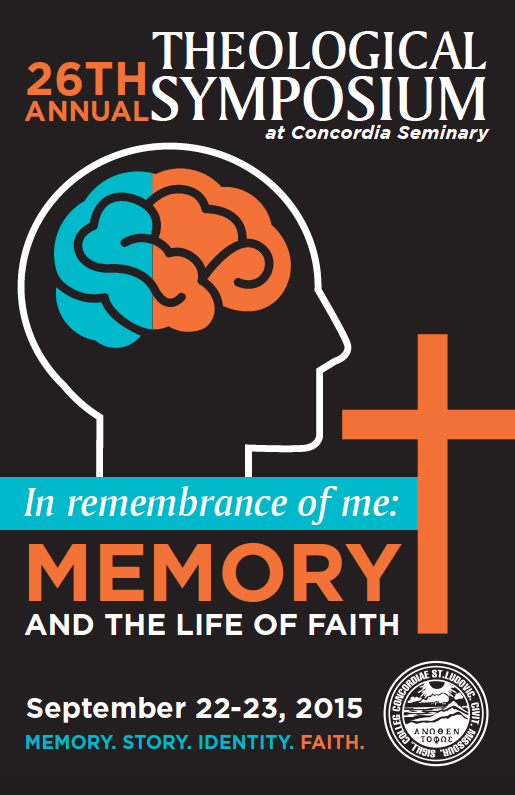 We stand at a point in time when we are learning incredible new insights into how memory works, both individually and collectively. The 2015 Theological Symposium will engage and explore what we are learning about memory and its central role in the life of faith, how it cultivates community, and its implications for preaching, pastoral care, and congregational ministry. And so this year’s symposium deals with one of the most important and exciting areas where science and faith intersect, namely, the question of our brain and memory. Among other things the symposium will deal with such questions as:
We stand at a point in time when we are learning incredible new insights into how memory works, both individually and collectively. The 2015 Theological Symposium will engage and explore what we are learning about memory and its central role in the life of faith, how it cultivates community, and its implications for preaching, pastoral care, and congregational ministry. And so this year’s symposium deals with one of the most important and exciting areas where science and faith intersect, namely, the question of our brain and memory. Among other things the symposium will deal with such questions as:
- How are memories formed? How does that affect our preaching, and teaching when we want people to remember the Word of God?
- What happens to a person when memories are lost? How does that affect our pastoral care to them?
- What role do memories play in our lives as individuals and shared memories as communities? How do they affect our identity as individuals and communities?
- What role do memories play in the Christian story that we tell? How do these memories become the shared memories of people new to the faith?
In order to get at this, we will first deal with the science of the brain and memory formation along with its implications for being human—along with its theological implications. Then we will deal with a theology of memory for pastoral and congregational ministry.
Day 1: The Science of Memory and Its Implications for Human Life
We will hear from plenary speakers/scientists who are working in the area of brain research and what we are learning about memory formation and memory loss along with how memory affects our identity as human creatures and our identity as human communities.
Each of the plenary speakers will be followed by a faculty member’s reflection on what that might mean for us as Christians and for us as the church…who live by passing on the church’s memories.
Finally in the evening following dinner: you will have a chance to chat with our speakers and faculty members at discussion tables about this topic or any other topic of your choosing.
Day 2: The Theology of Memory and its Implications for Congregations and Ministry
Faculty will continue to explore the importance of memory for identity, formation, and the role of story in three parts:
First, we’ll explore theological dimensions of memory in the Old Testament, the New Testament, and church history.
Second, we’ll explore the importance of memory in pastoral ministry with regard to memory and grief, forgiveness and memory, and diseases like Alzheimer’s.
Finally, we’ll explore the importance of memory in congregational life and ministry when it comes to preaching, worship, and teaching the faith.
More information, including the speakers we’ve lined up and registration information, will be rolled out in a series of posts coming soon. Stay tuned for more details.

Leave a Reply
You must be logged in to post a comment.